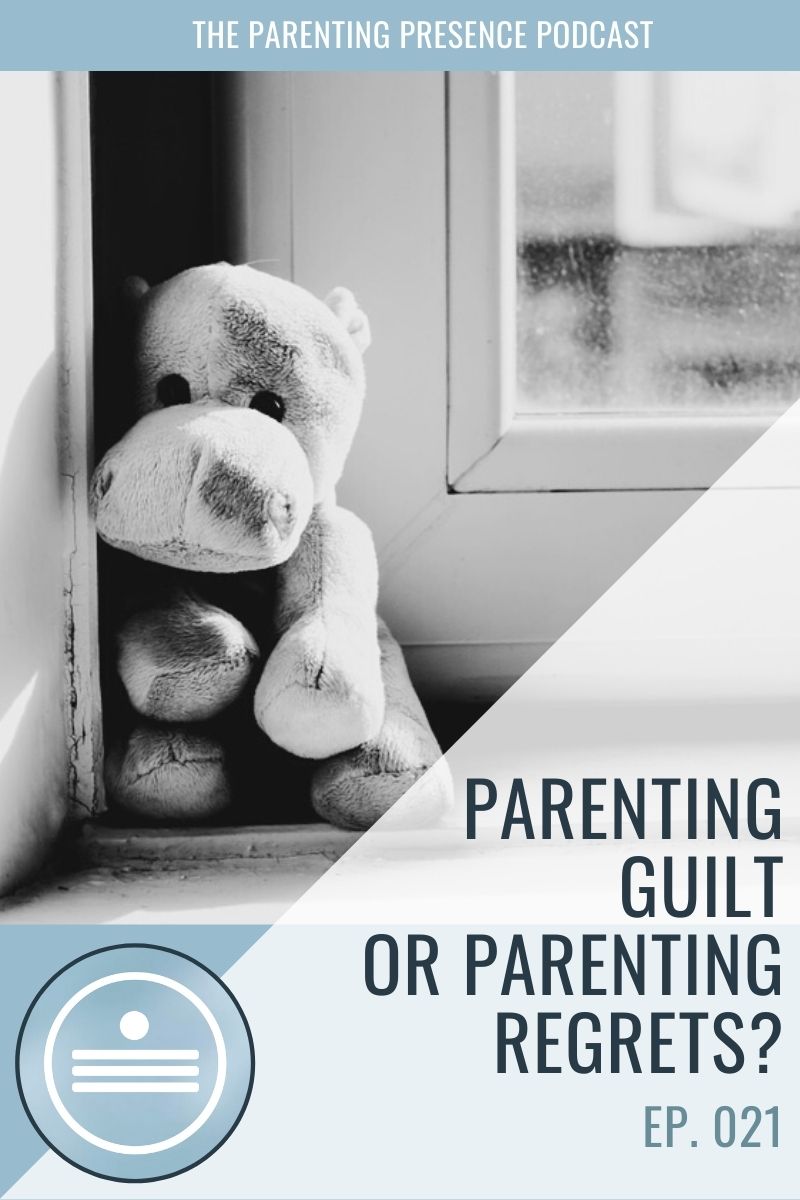
Parent guilt is a huge issue and parenting from that place is a huge problem. Bigger than we think. It compromises our mental health. It also gets in the way of us enjoying parenting. But did you know that carrying the burden of guilt is optional?
Have you ever wondered why we are so accustomed to parenting guilt? Why has this become the norm? When we raise our children, we constantly ask ourselves whether we are doing the right thing for the child, whether we are giving them the very best. These are great questions, but to a point.
Some of what defines a “good parent” for us comes from our own values. And some of it comes from the external impressions we have absorbed from the society. These questions come from a good place and, as a starting point, they are a relatively harmless. But when we start to perseverate on them and nothing we do seems good enough, then we can get ourselves into a guilt cycle. Not only is this cycle harmful for us, it will have a negative impact on our children.
If we don’t understand guilt, we let it guide our parenting, and parenting from this place harms us and the children. Although the feeling of guilt is inevitable, it does not need to be permanent. In this podcast Episode we take a look at four aspects of dealing with guilt. And even if you just focus on two, you will be well on your way in eliminating guilty parenting.
What if things were different…
They can be! Even though the feeling of guilt is inevitable when we first become parents, it does not need to be permanent. Instead of dwelling on guilt, which is unproductive & harmful for our mental health, we can learn to understand its nature, spot it when it appears, and instead choose to focus on things that do actually matter to us. But first, you need to know the difference.
The difference between Parenting Guilt and Regret.
Regret is a functional feeling. It tells you something was mis-aligned in your actions and values, and it helps you decide what to do in the future. Guilt, on the other hand, keeps you stuck in a vague sense of obligation to do something you are not inclined to do.
Unlike guilt, regret tells you that something important and valuable to you has been neglected. It tells you how to get back on track. There will be things in our parenting we truly deep down in our heart wish we had done differently. And we can! Regretting a choice helps you see what you can do next time.
Reflecting on our mistakes and mis-steps is part of learning and becoming better in our parenting role.
Regret says: Hey, we can do better here, you owe it to yourself...
Guilt says: Hey, it’s expected you step up, it is your obligation no matter how you feel about it!
Which voice would you rather tune into?
So, ditch the guilt and embrace regret!
Regret is concerned with your true Values, but guilt has an agenda of serving someone else’s interest. Unlike regret, guilt does not give us a clear sense of action for the future. We are trapped feeling both like we did the right thing and the wrong thing at the same time. Ugh…
To move past the heavy and oppressive feeling of Guilt, we need to be able to tell it apart from Regret. Since guilt often feels like regret, I show you how to tell the difference in this episode, so have a listen!
Want to learn more about emotions and how to use them to your benefit? Sign up here for the Emotionally Intelligent Parenting training.
